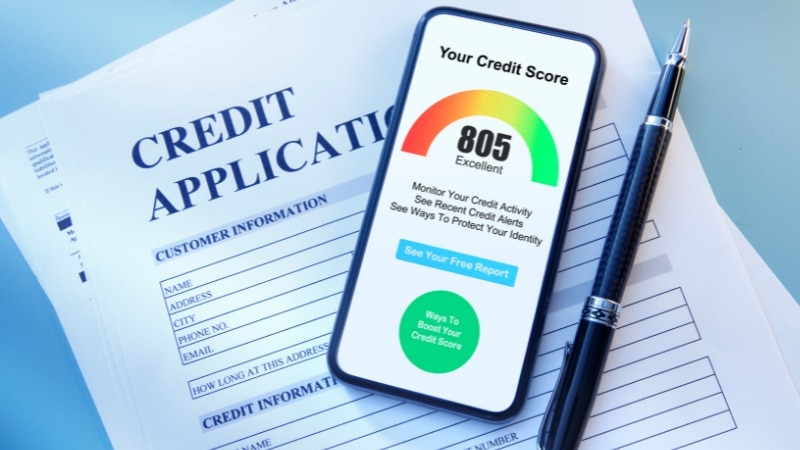How to improve your credit score is a crucial topic for anyone looking to secure better financial opportunities. A higher credit score can lead to lower interest rates on loans, better credit card offers, and even improved chances of renting an apartment or getting a job.
One effective strategy in how to improve your credit score is to consistently pay your bills on time. Payment history is a major component of your credit score, and even one missed payment can have a negative impact. Setting up automatic payments or reminders can help ensure that you never miss a due date, thereby positively influencing your score.
Another important aspect of how to improve your credit score is managing your credit utilization ratio. This ratio compares your current credit card balances to your total credit limit. Keeping your credit utilization below 30% shows lenders that you are responsible with your credit.
Understanding Credit Scores

Firstly, it’s essential to understand what a credit score is and how it’s calculated. Your credit score is a three-digit number that lenders use to evaluate your creditworthiness. It ranges from 300 to 850, with higher scores indicating better creditworthiness. The most commonly used credit scoring model is the FICO score, which considers several factors.
Key Factors Affecting Your Credit Score
- Payment History: This is the most significant factor, accounting for 35% of your FICO score. It includes your track record of on-time payments.
- Credit Utilization: This represents 30% of your score and measures the amount of credit you’re using relative to your credit limits.
- Length of Credit History: Making up 15% of your score, this considers the age of your accounts.
- New Credit: Comprising 10% of your score, this reflects recent credit inquiries and newly opened accounts.
- Credit Mix: The remaining 10% evaluates the variety of credit accounts you have, such as credit cards, mortgages, and auto loans.
Strategies to Improve Your Credit Score
1. Pay Your Bills on Time
Firstly, consistently paying your bills on time is crucial. Late payments can significantly impact your credit score. Set up automatic payments or reminders to ensure you never miss a due date.
2. Reduce Credit Card Balances (How to improve your credit score)
Another effective strategy is to reduce your credit card balances. Aim to keep your credit utilization ratio below 30%. Paying down your balances can quickly boost your score.
3. Avoid Opening New Credit Accounts Unnecessarily
Opening new credit accounts can lower your average account age and result in hard inquiries, which may negatively affect your score. Only apply for new credit when necessary.
4. Check Your Credit Report Regularly
Additionally, regularly checking your credit report can help you identify and dispute any errors. You’re entitled to a free credit report from each of the three major credit bureaus annually through AnnualCreditReport.com.
5. Diversify Your Credit Mix (How to improve your credit score)
Having a mix of different types of credit can positively impact your score. If you only have credit cards, consider adding a different type of credit, like an installment loan, to your profile.
6. Keep Old Accounts Open
Even if you no longer use certain accounts, keeping them open can be beneficial. Closing old accounts can reduce the average age of your credit history, which might lower your score.
7. Limit Hard Inquiries
Hard inquiries occur when lenders check your credit report for lending decisions. Multiple hard inquiries in a short period can negatively impact your score. Try to limit the number of applications for new credit.
Retirement Planning for Self-Employed: Essential Strategies
When it comes to securing a financially stable future, retirement planning for self-employed individuals requires a tailored approach. Without the benefits of employer-sponsored retirement plans, self-employed workers must take extra steps to ensure they save adequately for retirement. Utilizing resources and strategies designed specifically for self-employed individuals can make a significant difference.
By exploring various retirement account options, maximizing contributions, and leveraging tax benefits, self-employed professionals can create a robust and secure retirement plan.
The Importance of Patience and Consistency
Improving your credit score is not an overnight process. It requires patience and consistent effort. However, by following these strategies and maintaining good financial habits, you can see gradual improvements in your score over time.
1. Set Realistic Goals (How to improve your credit score)
Setting realistic goals for your credit improvement journey is essential. Understand that significant changes might take several months to a year, depending on your starting point and financial behavior.
2. Monitor Your Progress
Use credit monitoring tools to track your progress. These tools can provide insights into your score changes and alert you to any significant shifts, helping you stay on top of your credit health.
Leveraging Financial Institutions for Better Retirement Planning (How to improve your credit score)
Choosing the right financial institution can significantly impact your retirement planning. Capital One offers a range of financial products and services that can help self-employed individuals manage their finances more effectively. By utilizing the resources provided by Capital One, you can open retirement accounts, access investment options, and receive personalized financial advice. This support can help you create a comprehensive retirement plan that ensures financial stability and security in your later years.
Frequently Asked Questions About Improving Your Credit Score
1. How Long Does It Take to Improve a Credit Score?
The time it takes to improve a credit score varies. Minor improvements can be seen within a few months, but significant changes might take a year or more, depending on your credit history and financial behavior.
2. Will Checking My Own Credit Score Lower It?
No, checking your own credit score is considered a soft inquiry and does not affect your score. It’s a good practice to check your score regularly to monitor your progress.
3. Can Paying Off Debt Improve My Credit Score?
Yes, paying off debt can improve your credit score, especially if you’re reducing high credit card balances. Lowering your credit utilization ratio is one of the quickest ways to boost your score.
4. Do Late Payments Affect My Credit Score Immediately?
Late payments can be reported to the credit bureaus if they are more than 30 days late. The longer a payment is overdue, the more it can hurt your credit score. It’s crucial to address missed payments as soon as possible.
5. Is It Possible to Remove Negative Information from My Credit Report?
In some cases, you can dispute inaccurate negative information with the credit bureaus. If the information is accurate, it generally remains on your credit report for seven years.
6. How Can I Build Credit if I Have None?
If you have no credit history, consider applying for a secured credit card, becoming an authorized user on someone else’s account, or taking out a credit-builder loan. These options can help you establish a credit history.
Conclusion in how to improve your credit score
In conclusion, knowing how to improve your credit score involves understanding the factors that affect it and implementing consistent, strategic actions. By paying your bills on time, reducing debt, monitoring your credit report, and being mindful of new credit applications, you can enhance your creditworthiness over time. Remember, patience and persistence are key to achieving and maintaining a healthy credit score.



